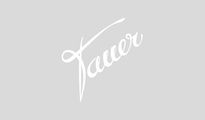

cheating and roses
Today’s picture shows you what we did the other day in my painting class, we were all invited to cheat: The goal was to learn seeing behind the complexity of things. BY….
1. tracing the motive of a picture with a pencil through transparent paper. The original was a postcard size complex motif, like the Brooklyn bridge.
2. putting the original picture away, and -using the traces on transparent paper- sketching freehand the motif, reducing its complexity further, by looking for simple lines and shapes and forms and contrasts.
3. adding color and looking at the result.
Amazing.
I have my rules when it comes to painting. One top rule is: No tracing, but you always paint free hand, to train my eye hand brain coordination.
The same is, by the way, true for my way of creating perfumes. There are formulas that you can get, IFF, for instance, has demo formulas somewhere on their site. like this one here, for a gourmand accord, with 24% musk and 12 % Timbersilk, aka Iso E. Quote often, I get questions from perfume lovers who want to start composing, asking for formulas to learn. As tempting it is: I don’t think it is a good way of finding your way in and out in perfumery. Not good for your nose-brain coordination, and benumbing your imagination.
In the painting class, we only used the tracing as a trick to get around the complexity and learn to see through all the little cables and windows and complex patterns, learn to identify what matters and how to use it to compose a picture.
A smart trick.
I guess the same trick works in other fields. Like business, when it comes to complex marketing questions. Add a filter that blurs the data, that just lets the important stuff shine through, like “we make 50% of our turnover with one product” and move from there on. Or it might work in private life, or …
Thus, the bottomline of this post: Sometimes we are allowed to cheat. And maybe, maybe even looking at demo formulas in perfumery might be ok, just to see the bigger picture of how things are done. Although I am not sure about that. The danger is imminent that you end up with a copy of a copy of what everybody else does. The same is true for using bases from industry, by the way, like rose bases where industry does the rose composition for you. Easy, but without little learning effect.
Talking about roses and in order to finish this all up: Here’s a link to a great piece of writing on Scenthurdle about Andy’s roses, in comparison and from an interesting perspective, without going into any details: Like my rose perfumes traced through transparent paper. I really liked that piece of writing.
